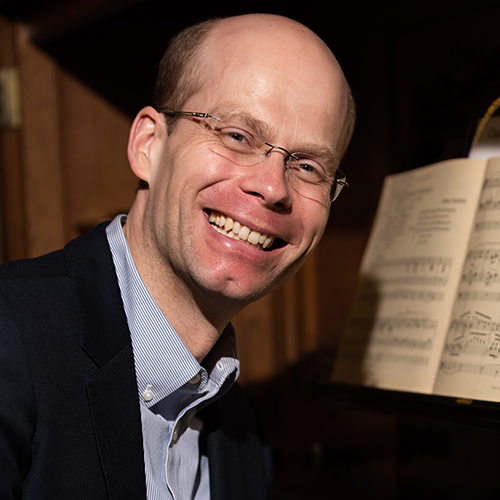Organ
Organ
Learn everything about your application process:
- Academic Minor (in Music or in Church Music)
- Advanced Performer's Certificate
- BA in Music
- BM in Church Music
- BM in Composition
- BM in History and Literature
- BM in Performance
- BM in Theory
- BME (Bachelor of Music Education)
- DMA in Church Music
- MDiv/MM in Church Music
- MM in Church Music
- MM in Composition
- MM in Conducting
- MM in Musicology
- MM in Performance
- MM in Theory
- PhD in Church Music
- Secondary Major (Undergraduate)
Secondary Major (Undergraduate)
Secondary Major (Undergraduate)
The Secondary Major in Instrumental, Keyboard, or Vocal Performance allows advanced performers (piano, organ, voice, winds, brass, strings, or percussion) to continue their interest in music performance while pursuing another academic career path. The secondary major is differentiated from a music major in that academic music requirements (music theory, music history, etc.) are substantially reduced while retaining regular private instruction, participation in ensembles and chamber music, and a recital in the senior year.
Through this secondary major option, upon graduation, a student earns one baccalaureate degree in an area other than music. Although not awarded a second degree in music, the student's transcript will reflect that he or she has earned a Secondary Major in Instrumental, Keyboard, or Vocal Performance. An audition is required for acceptance into the Secondary Major.
Resources
Organ Program
The organ program at Baylor University offers Bachelor’s, Master’s, and Doctoral Degrees and an Advanced Performer’s Certificate. Students can major in organ performance, church music with organ concentration, or organ as a secondary major. In addition to applied lessons, classes in service playing/improvisation, choir conducting, harpsichord, (jazz-) piano, etc., prepare students for successful careers as church musicians, concert organists, and educators.
Performance and Service Opportunities
Organ majors regularly perform with Baylor University’s choirs and orchestras, in chamber music and early music ensembles, and as soloists, both on and off campus. Students usually hold positions in one of the many churches in the Waco area, where they can apply their skills and gather valuable practical experience.
Travel Opportunities
The organ studio regularly goes on study trips to major instruments in the US and in Europe.
Past destinations include Paris, London, Haarlem, Leipzig, New York and Philadelphia. These trips offer students the possibility to experience first-hand the sounds of the instruments that inspired many of the masterworks of the organ repertoire. Encounters with local organists and visits to major monuments, museums, and operas/concert halls provide students with an immersive experience in the culture of the respective destinations.
Guest Artists
We offer many opportunities to learn from other leading professional teachers and performers in the field. Recent distinguished guests have included Paul Jacobs, Ken Cowan, Alan Morrison, Johann Vexo, Jean-Baptiste Robin and Simon Johnson.
Alumni Success
Our alumni currently hold positions with the Nashville and Dallas Symphony Orchestras, as faculty and adjunct faculty in U.S. universities, and at numerous churches across the country. Baylor organ graduates pursuing higher education have been accepted into advanced degree programs at many of our nation’s finest institutions.
Organ Faculty
National High School Organ Competition
An opportunity for talented young organists to gain valuable performance experience and recognition.
